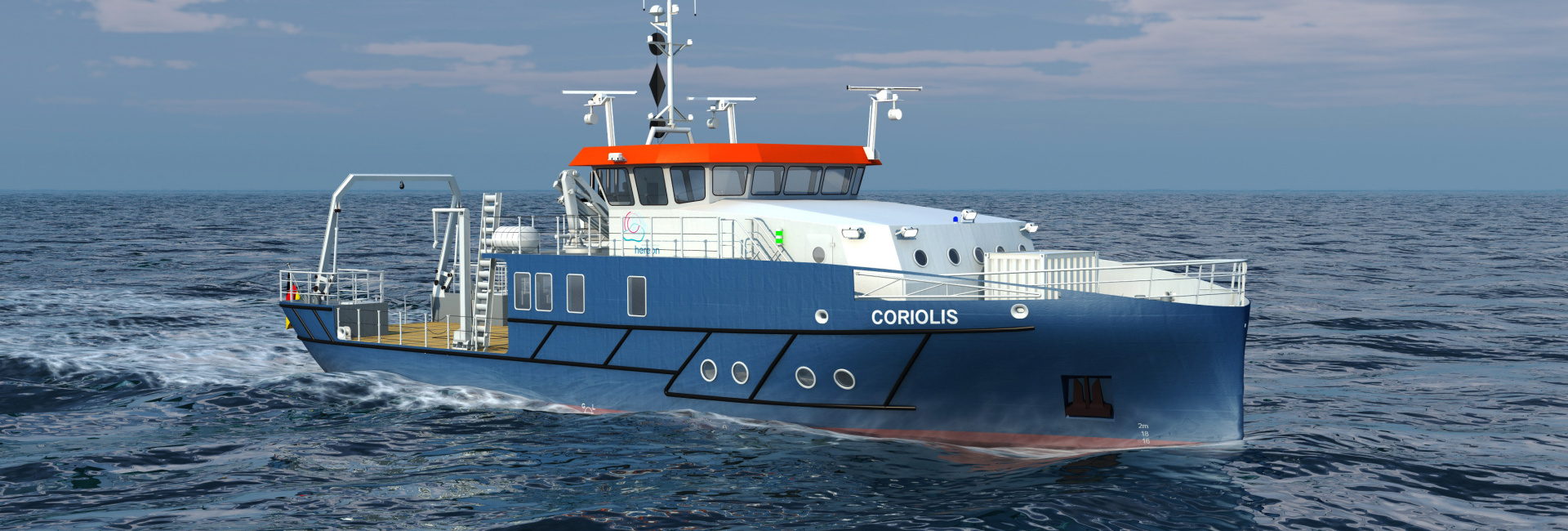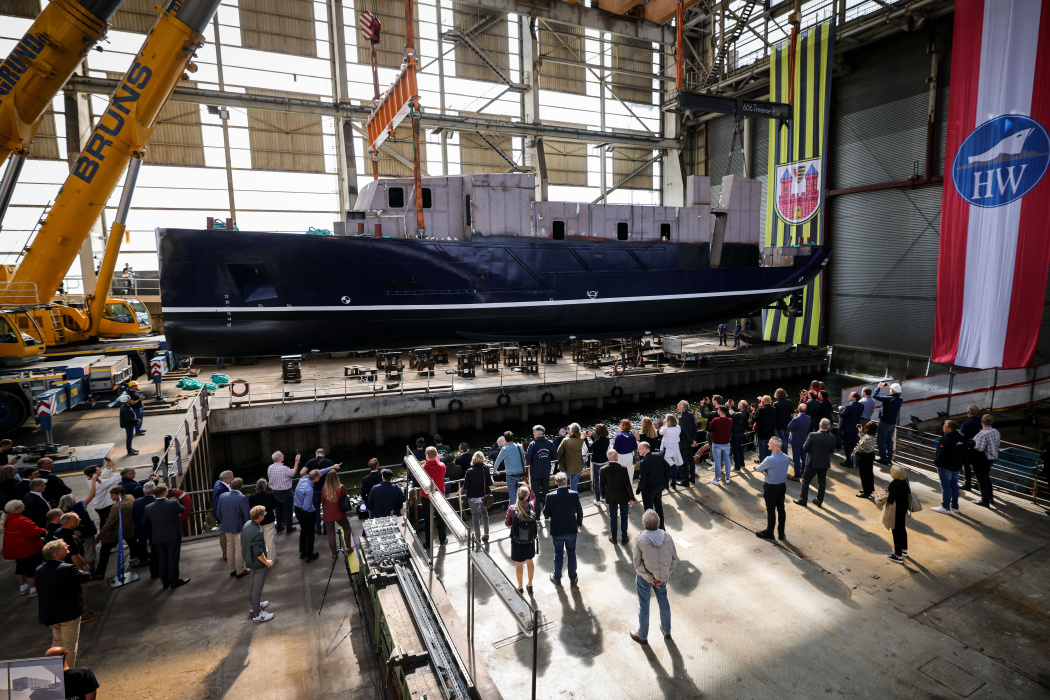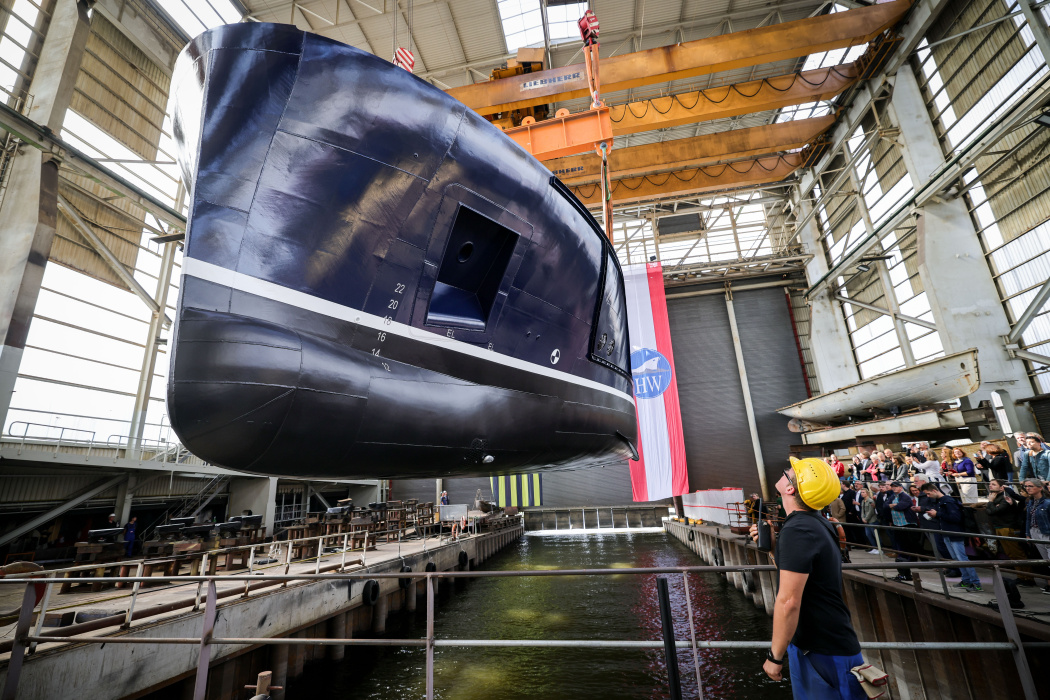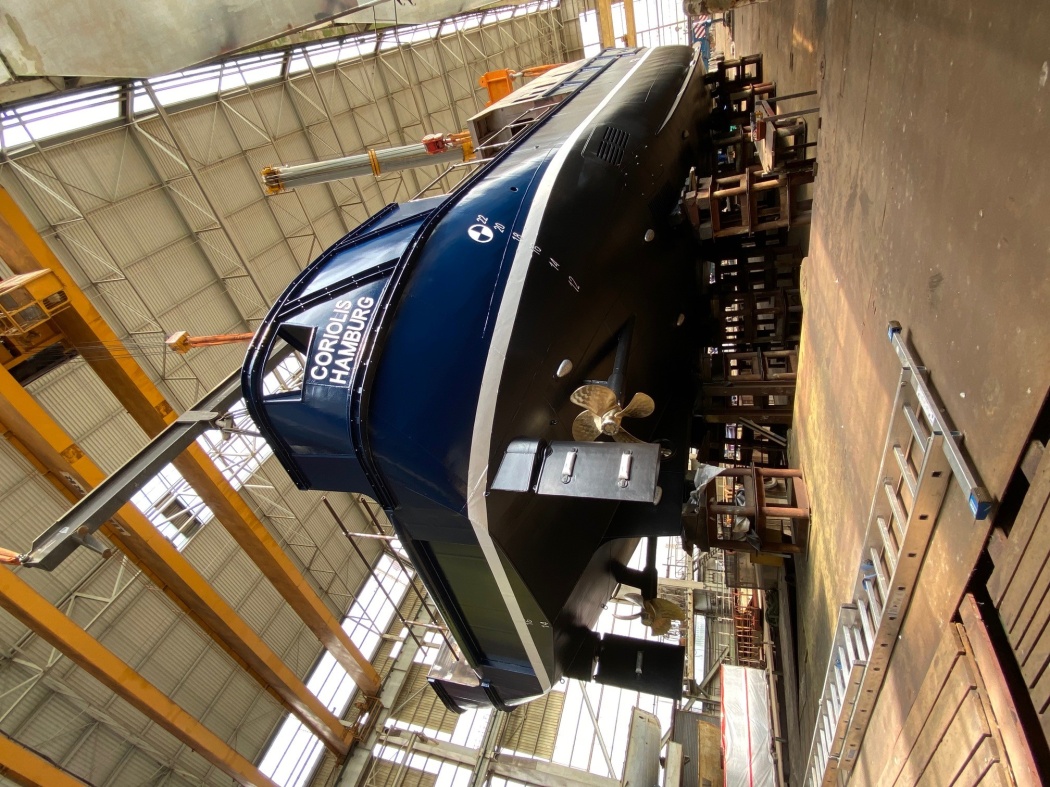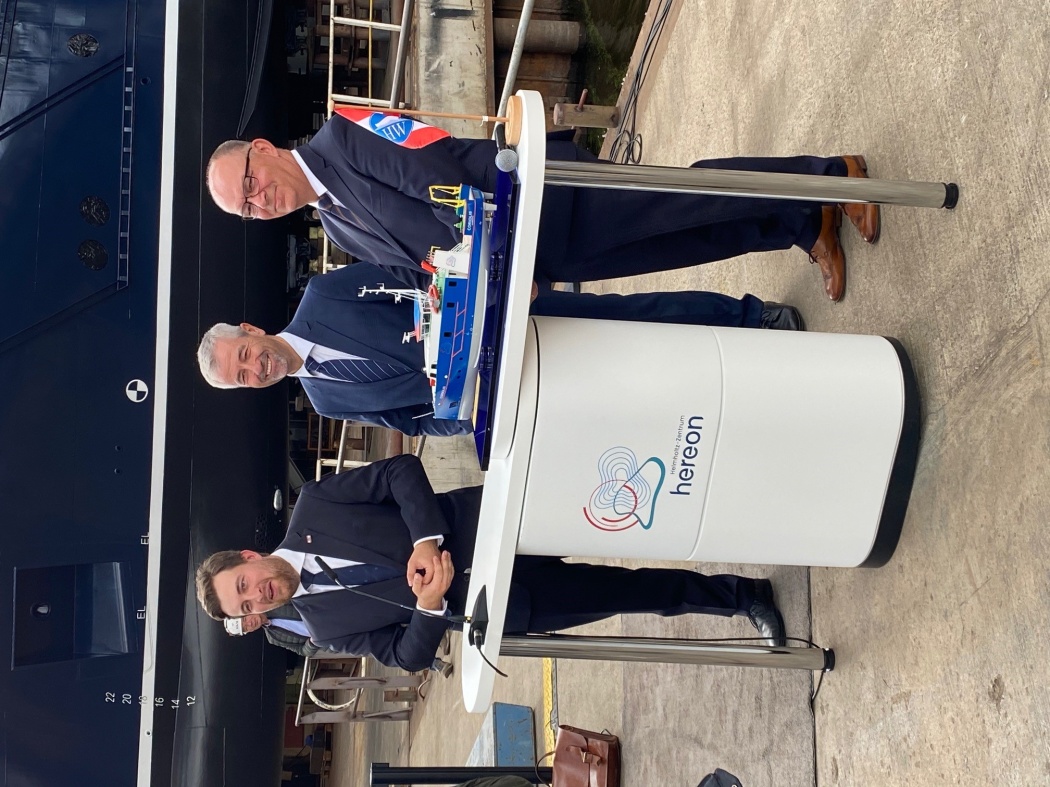In its element
Water under the keel for the first time: On Thursday, 31 August 2023, the pile launch of the Hereon research vessel Coriolis was celebrated at the Hitzler shipyard in Lauenburg. As the world's first ship, it combines coastal, materials, membrane and hydrogen research on board. Much of the research data will be available in real time on a publicly accessible dashboard.
Almost 125 tonnes were lifted into the harbour basin of the Hitzler shipyard by two indoor cranes and two mobile cranes. With the pile launch thus celebrated, the Coriolis, the new research vessel of the Helmholtz-Zentrum Hereon, traditionally has (Elbe) water under its keel for the first time and can be further expanded while floating from now on.
The steel hull of the ship has already been completed - the propeller, rudder and shaft system as well as the rubbing strakes have also been fitted. After the stacking lift, the bulwark and the wheelhouse will be put on. The Coriolis will remain in the harbour basin until it is completed, where it can be completely dismantled, protected from the weather.
"We are proud to have reached another milestone in the construction of the "Coriolis" with the pile launch. We look forward with motivation to the coming months in which the hull will be filled with life. The first trades will be electricians, pipelayers and mechanical engineers," reports Kai Klimenko, owner of Hitzler Werft.
The Coriolis is just under 30 metres long, 8 metres wide and has a draught of 1.6 metres. With a crew of 3 and up to 12 scientists on board, it reaches a top speed of 12 knots. The research vessel is versatile and can be used in rivers as well as in the North and Baltic Seas. With a wide variety of laboratories on board and an innovative propulsion system, the Coriolis combines coastal, material, membrane and hydrogen research.
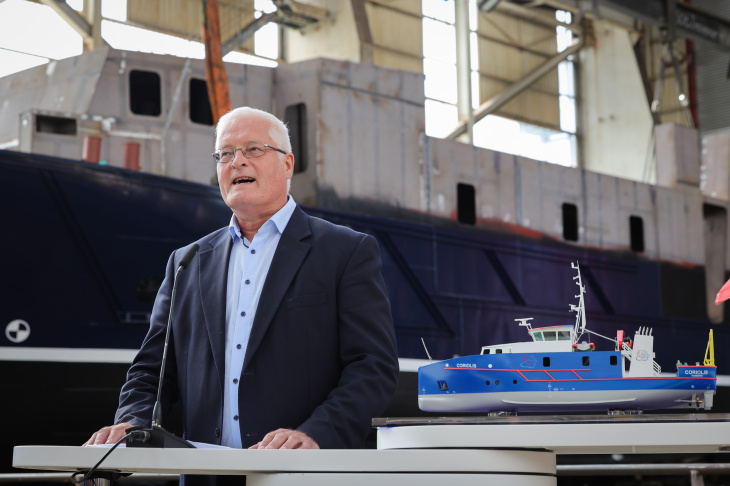
Greetings from Prof Matthias Rehahn, scientific director of the Helmholtz-Zentrum Hereon. Photo: picture alliance / dpa / Christian Charisius
Prof Matthias Rehahn, scientific director of the Hereon:
"The Coriolis combines cutting-edge interdisciplinary research on board and, with its innovative propulsion concept, is a pioneer for climate-neutral shipping. This presents the Hereon as unique and progressive."
Judith Pirscher, State Secretary at the Federal Ministry of Education and Research:
"The Coriolis is not only a research vessel, but also a technology carrier, flagship of Hereon and instrument for technology and knowledge transfer at the same time. In addition to a diesel-electric propulsion system, the Coriolis will also be equipped with a fuel cell with innovative hydrogen storage. In this way, the Coriolis combines excellent science with innovative application. I wish it every success in this endeavour!”
Real-time data transmission
On a publicly accessible dashboard, which was further developed in close cooperation with the Helmholtz Coastal Data Center (HCDC), it will in future be possible - in addition to meteorological and data, the ship's position and speed - to follow data about the propulsion system live, including for example the state of charge of the batteries, the speed of the propellers and even the flow of hydrogen into the fuel cell. To guarantee error-free use, the dashboard is still being tested on the Coriolis predecessor Ludwig Prandtl and can already be accessed live.
"Seeing the Coriolis in the water increases our anticipation for the measurement programmes of the coming years. Parallel to the construction of the Coriolis, we have developed a dashboard for the measurement data, which is currently being tested on the Ludwig Prandtl. Until the Coriolis is commissioned, we will further develop the dashboard and display additional measurement data - such as the water current, for example," explains Volker Dzaak, project manager of the Coriolis.
"The research projects planned on board the Coriolis will provide an important contribution to the energy transition, for example in researching the consequences of climate change in the Baltic Sea and testing renewably produced hydrogen as a propulsion technology. This is now getting decisively closer with the stacking lift of the Coriolis. Research projects like this are a flagship for Germany as a scientce location," says Dr Nina Scheer, Member of the Bundestag.
The Coriolis is being built by the Hitzler shipyard in Lauenburg and is scheduled to be handed over to the Hereon in 2024. Around 13.5 million euros were approved by the Bundestag's budget committee in 2020 for the new construction of the globally unique research vessel.
Further information
Contact
Project Manager Coriolis
Institute of Coastal Environmental Chemistry
Phone: +49 (0) 4152 87-2394
